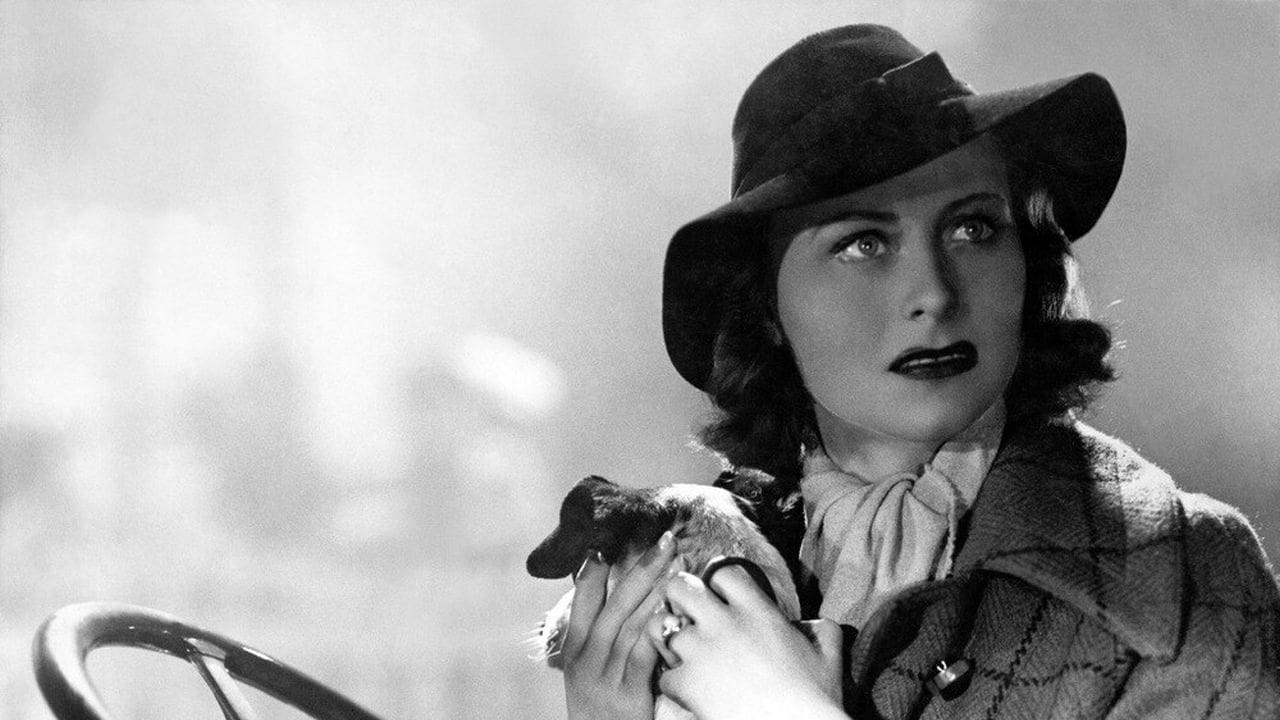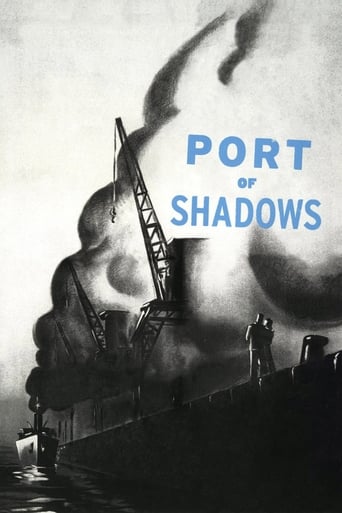

Excellent, a Must See
... View Moreeverything you have heard about this movie is true.
... View MoreAn absolute waste of money
... View MoreThe performances transcend the film's tropes, grounding it in characters that feel more complete than this subgenre often produces.
... View MoreTogether with Jean Renoir's "The Beast", Marcel Carne's "Port of Shadows" is one of the first films to push French poetic realism into what would later be dubbed "film noir" (John Huston's hardboiled "The Maltese Falcon" would appear 3 years later). Both genres were indebted to German Expressionism (Lang, Josef Von Sternberg etc).Moody, tough, and with an undercurrent of melancholia, "Port of Shadows" stars Jean Gabin as an army deserter who gets mixed up with gangsters, low-lives and cute gals. The film's praised by historians for being "daring" and "violent for its time", but Warner Bros gangster flicks were doing this stuff almost a full decade earlier. The backhanded slap which Jean Gabin shockingly launches at a small-time hoodlum (Pierre Brasseur), for example, was inspired by the smacks James Cagney's many villains routinely dished out toward unsuspecting dames. Still, fatalistic, thick with atmosphere and pessimistic to the point of parody, "Port of Shadows" remains a minor classic.7.9/10 – See "Elevator to the Gallows", "Rififi" and "The Beast".
... View MoreMy favourite line in this lovely, lyrical film is when the creepy Zabel says to our handsome and virile hero "I know why you came here (i.e. to the port). You came here for the ships" thus exposing the hero's secret. And I thought: "Of course, that's why we all come here (i.e. to the cinema), for those ships that are preparing to sail to Venezuela" We never get to Venezuela and neither does our doomed hero but that's not why we're here. Our hero, at first, is wrapped in the worsted wool of an army uniform and when he meets the beautiful heroine she is enclosed in a shiny, weather repellent coat. They both loose these carapaces in favour of more roomy, more approachable outfits that allow them to display themselves and slowly, as the film progresses, become vulnerable and aware of their tragic fates.We never see the beautiful Nelly's murdered lover, the only indication of his appearance is a cuff link, found under the stairs in the wine cellar. And the kindest and wisest man in the film has a hat that he got in Panama, somewhere we'll probably never get to either. It makes me think that the people who made the film are the Panama hat, lying in the foggy shadows somewhere out there on the edge of the quay.
... View MoreLe quai des brumes Port of Shadows This is a dark and moody movie set in the late thirties. The foggy atmosphere adds to the ambiance of the movie and was appropriate for the time considering what was going on in the world at that time. This slightly sad and depressing movie contrasted with the continually upbeat Hollywood movie productions at that time. The main character Jean, has dissented from the French army, which is not explicitly stated, but is apparent. He has seen violence in the army and finds more when he arrives in this port town and meets a beautiful girl. The only trustworthy friend that he can find is a dog. . It is sad that some men reach a point when the only person that they can trust is a dog. He falls in love with this girl, Nelly, and figures out a way to get them on a ship to Venezuela, but the men who lust over Nelly do not want to see her go. This creates more violence for the two. The dark atmosphere of the movie displays troubled times and desperation of men and the violence in the world. This movie takes a very dark look at the issues of the world that are not normally discussed or portrayed in movies. In the end, this is just a gloomy movie. I did not enjoy it very much because I found it boring and dull. The fog and mood that it invoked did nothing to encourage me to care about the characters or the challenges that they faced. This movie had a constant sense of dismay and was appropriate for the thirties, but the appreciative aspects of it are lost on most people of the current generation. I would not recommend this movie to a depressed person.
... View MoreLe Quai des Brumes (Port of Shadows, Marcel Carn, France 1938, 91 min.) is a fabulous example of poetic realism. Poetic realism was a cinematic movement that emerged in France during the 1930's. The imagery, the play of shadows and fog, and the story of tragic lovers are all components of this style. The style is very similar to the more well-known style of Film Noir most likely because of the influence poetic realism had on it.Port of Shadows is a story about a man, played by Jean Gabin, who is a military deserter. He finds himself involved with the corrupt lower class of a French town. In the process of trying to obtain a new identity and move to Venezuela, Jean falls in love with the young woman Nelly, played by Michele Morgan. Nelly comes with some baggage though. The only way Jean can be with Nelly is if he deals with a number of corrupt men that are causing problems for her. Unfortunately it leads the lovers to a tragic end.The movie was entertaining but I can't say Poetic Expressionism is my favorite of styles. I do love the scenes near the water and the play of shadows and fog. I also love the extremely cute dog haha. Even though it isn't a personal preference, Marcel Carné definitely achieved the style. Other than having a slightly slow pace, Port of Shadows is an entertaining film with intriguing characters.
... View More